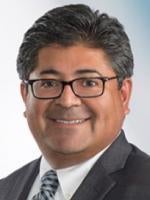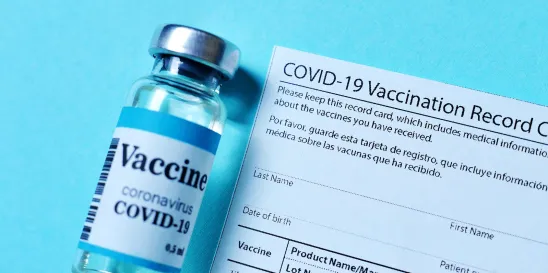On November 10, 2023, Texas Governor Greg Abbott signed into law Senate Bill 7, enacting a ban on COVID-19 vaccine private workplace mandates. While all private employers in Texas are covered by the SB 7 mandate, the new law contains provisions specific to certain health care facilities, health care providers, and physicians. Here is what those employers need to know now:
1. SB 7 takes effect on February 6, 2024. SB 7 contains a provision which would have allowed the mandate ban to take effect immediately, had it received two-thirds of the vote of all members of both the Texas House and the Texas Senate. (SB 7 at Sec. 4). SB 7 failed to receive the votes necessary for immediate effect (Id. at page 6); as such, it takes effect on February 6, 2024, which is the 91st day after the conclusion of the Special Session in which it was passed. (Id. at Sec. 4; https://lrl.texas.gov/sessions/specialsessions/index.cfm).
2. SB 7 applies to all private employers, and to all employees, contractors, or applicants. SB 7 was intended to be sweeping in its application, as such it applies to all private “employers,” which is defined in the new statute as “a person, other than a governmental entity, who employs one or more employees.” SB 7 at new Health & Safety Code Sec. 81D.001 (5) (emphasis added). Similarly, the new law is designed to protect “employee[s], contractor[s, and] applicant[s] for employment [or contract positions] . . .” Id. at new Sections 81D.002 & 81D.003, and defines a “contractor” as “a person who undertakes specific work for an employer in exchange for a benefit without submitting to the control of the employer over the manner, methods, or details of the work.” Id. at new Sec. 81D.001 (3).
3. SB 7 prohibits the adoption or enforcement of a mandate as well as the taking of an adverse action. Without exception, SB 7 prohibits a private employer from adopting or enforcing “a mandate requiring an employee, contractor, applicant for employment, or applicant for a contract position to be vaccinated against COVID-19 as a condition of employment or a contract position.” SB 7 at new Health & Safety Code Sec. 81D.002. Similarly, SB 7 prohibits private employers from taking an “an adverse action against an employee, contractor, applicant for employment, or applicant for a contract position for a refusal to be vaccinated against COVID-19.” Id. at new Sec. 81D.003. “Adverse action” is defined in SB 7 as “an action taken by an employer that a reasonable person would consider was for the purpose of punishing, alienating, or otherwise adversely affecting an employee, contractor, applicant for employment, or applicant for a contract position.” Id. at new Sec. 81D.001 (1).
4. SB 7 contains an adverse action exception for certain health care facilities, health care providers, and physicians. SB 7 allows certain health care facilities, health care providers, or physicians to “establish and enforce a reasonable policy that includes requiring the use of protective medical equipment by an individual who is an employee or contractor of the facility, provider, or physician and who is not vaccinated against COVID-19 based on the level of risk the individual presents to patients from the individual’s routine and direct exposure to patients.” SB 7 at new Health & Safety Code Sec. 81D.0035(2)(b). Establishing or enforcing such a policy by certain health care facilities, health care providers, and physicians will not be considered an adverse action. Id. at new Sec. 81D.0035(c). This exception applies to:
- health care facilities that are a “a provider of services, as defined by Section 1861, Social Security Act (42 U.S.C. Section 1395x)” Id. at new Sec. 81D.0035(1);
- health care providers, as defined under Section 74.001(12) of the Texas Civil Practice & Remedies Code. Id. at new Sec. 81D.0035(2)(a); and
- physicians, as defined under Section 74.001(23) of the Texas Civil Practice & Remedies Code. Id.
If a complaint of adverse action is raised against a health care facility, health care provider, or physician that has implemented a policy under this section, the Texas Workforce Commission, as part of its investigation of such a complaint (as discussed more fully below), shall consult with the Department of State Health Services “in determining if [the] policy . . . was reasonable.” Id. at new Sec. 81D.004(c).
5. SB 7 tasks the Texas Workforce Commission with receiving and investigating complaints. SB 7 allows employees, contractors, and applicants to file complaints with the Texas Workforce Commission, in a form and manner to be set out by the Commission. SB 7 at new Health & Safety Code Sec. 81D.004(a). The Commission shall investigate each complaint received “to determine whether the employer took an adverse action against the complainant because of the complainant’s refusal to be vaccinated against COVID-19.” Id. at new Sec. 81D.004(c).
6. SB 7 allows for an administrative penalty, injunctive relief, and the recovery of investigative costs. If the Commission determines that an employer has violated the statute, the Commission shall impose an administrative penalty of $50,000 per violation, unless (as applicable), the employer:
- hires the applicant for employment or offers a contract to the applicant for a contract position; or
- reinstates the employee or contractor and provides the employee or contractor with back pay from the date the employer took the adverse action and makes every reasonable effort to reverse the effects of the adverse action, including reestablishing employee benefits for which the employee or contractor otherwise would have been eligible if the adverse action had not been taken.
SB 7 at new Health & Safety Code Sec. 81D.006(a). Additionally, the Commission may request that the Texas Attorney General “bring an action for injunctive relief against the employer to prevent further violations of this chapter by the employer.” Id. at new Sec. 81D.005(a). Such an action must be filed in state district court either in Travis County or in “the county in which the alleged adverse action occurred.” Id. Finally, if the Commission determines that an employer has violated the statute, the Commission may recover from the employer reasonable investigative costs incurred by the Commission in conducting the investigation, regardless of whether the employer has taken the corrective action described above. Id. at new Sec. 81D.006(b).
In light of the impending February 6, 2024, implementation date, health care employers with Texas operations should act now to review their current vaccine policies in order to ensure compliance with the provisions of SB 7.





 />i
/>i

